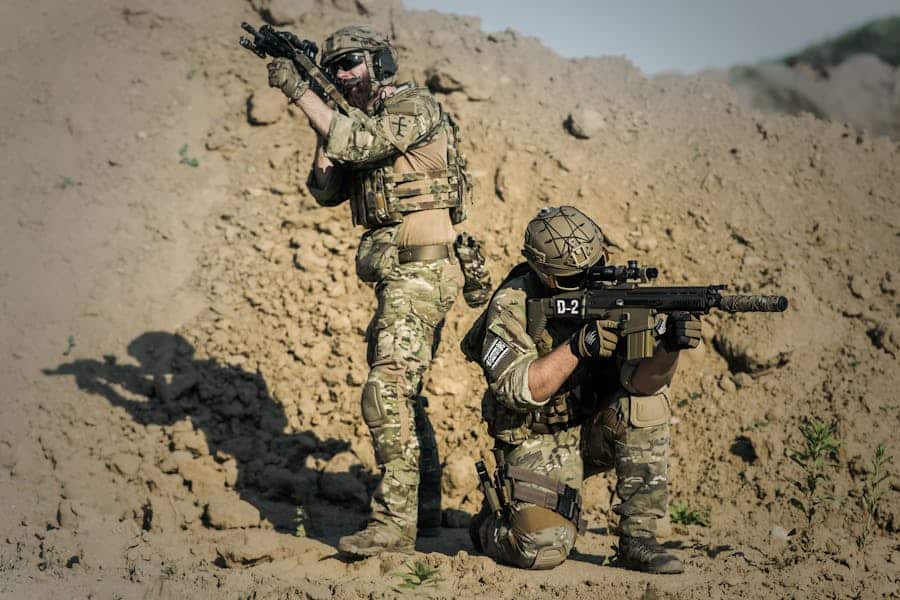
The question, “Will America have another civil war?” has been looming in the minds of many Americans as political polarization and social tensions rise. The idea of another civil war might seem far-fetched to some, while others see it as an imminent threat. In this article, we delve deep into the factors that could potentially lead to another civil war in America, examining historical precedents, current social and political divides, and expert opinions.
Will America have another civil war?
The possibility of another civil war in America is a subject of much debate. While some experts believe that the country’s deepening political and social divides could lead to significant unrest, others argue that the United States’ institutional strength and democratic framework are robust enough to prevent such a conflict. Factors like increasing polarization, economic disparities, and the proliferation of extremist groups contribute to concerns. Still, efforts to bridge divides and promote unity are crucial in preventing a repeat of the past.
Historical Context of Civil Wars in America
To understand whether America might face another civil war, it’s crucial to examine the historical context of civil wars. The American Civil War of the 19th century was driven by deep-seated issues such as slavery, economic disparities, and state rights. The war resulted in significant loss of life and had lasting impacts on the nation’s development. By studying the causes and consequences of past civil conflicts, we can identify potential parallels and differences with today’s situation.
Today, America is grappling with issues like racial tensions, political polarization, and economic inequality. While these issues differ from those of the 19th century, they are equally potent in dividing the nation. The lessons learned from the past can provide valuable insights into preventing a future civil conflict.
Furthermore, technology and social media have changed how people communicate and organize. Unlike before, information spreads rapidly, and social movements can gain momentum quickly. This dynamic can exacerbate divisions and offer opportunities to promote understanding and unity.
Current Political and Social Climate
Rising Political Polarization: The increasing divide between political ideologies in America is one of the most significant factors fueling concerns about a potential civil war. The polarization is evident in various aspects of life, from family discussions to workplace dynamics, creating an environment where compromise and dialogue are increasingly challenging.
Economic Inequality: Economic disparities have always been a source of tension in societies. In America, the gap between the wealthy and the poor continues to widen, leading to feelings of frustration and resentment. Addressing economic inequality is crucial in mitigating social unrest and promoting stability.
Racial and Ethnic Tensions: Racial and ethnic tensions remain a significant issue in America. Incidents of racial violence and discrimination continue to surface, highlighting the need for systemic changes and policies that promote equality and justice for all citizens.
Extremist Ideologies and Groups: The rise of extremist ideologies and groups poses a severe threat to national unity. These groups often exploit existing divisions and use violence to further their agendas. Combating extremism requires a multi-faceted approach, including law enforcement, education, and community engagement.
Signs of Potential Civil Conflict
Identifying the signs of potential civil conflict is crucial for taking preventive measures and maintaining stability. Here are some key indicators that could signal the risk of civil unrest in America:
Increasing Political Violence
Political violence, including protests, riots, and targeted attacks, has been on the rise. The escalation of such incidents often emerges from deep-seated grievances and frustrations not adequately addressed peacefully. The increasing frequency and intensity of political violence can lead to a breakdown in social order, raising the risk of broader conflict.
Erosion of Democratic Norms
Actions that undermine democratic norms and institutions, such as weakening checks and balances, executive overreach, and threats to electoral integrity, can signal potential civil conflict. These actions decrease public trust in institutions and increase political polarization, contributing to social instability.
Rising Extremism and Radicalization
The rise of extremist ideologies and the radicalization of individuals or groups are significant threats to social stability. Extremist groups exploit social and political divisions to further their agendas, increasing the risk of violence and civil conflict. The proliferation of extremist ideologies creates an environment where violence becomes a more likely means of resolving disputes.
Deepening Social and Economic Inequality
Growing social and economic disparities contribute to frustration and resentment, exacerbating tensions. When large segments of the population feel marginalized or excluded from economic opportunities, the risk of unrest increases.
Polarization of Media and Information
The polarization of media and information sources, leading to the spread of misinformation and echo chambers, can deepen societal divides. When people receive information reinforcing their beliefs and biases, reaching a consensus or engaging in constructive dialogue becomes harder, increasing the risk of conflict.
Deterioration of Public Services and Infrastructure
A decline in public services and infrastructure can signal potential unrest. When basic needs such as healthcare, education, and public safety are unmet, public dissatisfaction grows, leading to increased tensions and the potential for conflict.
Expert Opinions and Predictions
In examining the possibility of another civil war in America, it is essential to consider the perspectives and predictions of experts from various fields. Their insights can provide a more comprehensive understanding of the factors that might contribute to or prevent such a conflict. Here, we explore opinions from political scientists, historians, sociologists, and other relevant experts.
Political Scientists’ Perspectives: Political scientists often analyze potential civil conflicts’ structural and systemic aspects. Many experts in this field emphasize the importance of institutional strength and democratic resilience in preventing civil war.
Dr. Barbara F. Walter, a leading political scientist, argues that the United States exhibits several signs associated with countries at risk of civil conflict, such as political polarization, weakening democratic norms, and rising factionalism. However, she also notes that strong institutions and a robust civil society can act as critical safeguards against descending into violence.
Historians’ Insights: Historians provide valuable context by comparing current events with past instances of civil strife. They often draw parallels and highlight differences to better understand the present situation.
Dr. David Armitage, a historian specializing in civil wars, suggests that while America is experiencing significant internal divisions reminiscent of the period leading up to the Civil War, the contemporary context is different. The existence of democratic processes, legal frameworks, and international scrutiny provides a buffer against outright civil war. However, he warns that ignoring historical lessons can lead to repeating past mistakes.
Sociologists’ Analyses: Sociologists focus on the social dynamics and human behavior contributing to conflict. They study how societal trends, such as inequality and identity politics, can fuel tensions.
Dr. Arlie Russell Hochschild, a prominent sociologist, highlights the role of social alienation and economic disparity in driving divisions. She argues that increasing empathy and understanding across social and economic lines is crucial for mitigating conflict. Her work emphasizes the importance of addressing underlying social grievances to prevent escalation.
Security Experts’ Evaluations: Security experts examine violence and conflict risk factors from a security and defense standpoint. They analyze threats posed by extremist groups, domestic terrorism, and political violence.
Dr. Peter Bergen, a security expert, notes that the rise of domestic terrorism and the proliferation of extremist groups are concerning trends. He points out that effective law enforcement, intelligence operations, and community engagement are essential in countering these threats. Bergen emphasizes that preventing radicalization and addressing the root causes of extremism are critical to maintaining national security.
Economic Analysts’ Views: Economic analysts explore the impact of economic conditions on social stability. They study how economic disparities, unemployment, and financial crises can contribute to unrest.
Dr. Jeffrey Sachs, an economist, argues that economic inequality is a significant factor in social instability. He advocates for policies that promote economic justice, such as fair taxation, investment in education, and job creation programs. Sachs believes that addressing economic grievances can reduce the risk of conflict and promote social cohesion.
Psychologists’ Contributions: Psychologists examine the mental and emotional aspects of conflict. They study how factors like stress, identity, and group dynamics influence behavior.
Dr. Jonathan Haidt, a psychologist, explores the role of moral psychology in political polarization. He argues that understanding the psychological mechanisms behind group identity and moral reasoning can help bridge divides. Haidt emphasizes the importance of fostering empathy and dialogue to reduce animosity and promote understanding.
Conclusion
While significant challenges face the nation, including political polarization, economic inequality, and racial tensions, the strength of America’s democratic institutions and the potential for proactive measures offer hope. By addressing underlying issues and promoting unity, America can achieve a more stable and peaceful future. The lessons learned from past conflicts and the insights of experts can guide efforts to prevent another civil war and build a more inclusive and cohesive society.
FAQ’s
What are the main factors contributing to the risk of another civil war in America?
The main factors include political polarization, economic inequality, racial and ethnic tensions, and the rise of extremist ideologies and groups. These factors create divisions within society and contribute to social instability.
How can America prevent another civil war?
Preventing another civil war requires addressing underlying issues through policies aimed at reducing economic inequality, promoting racial justice, combating extremism, and fostering dialogue and understanding. Community engagement and grassroots initiatives are crucial in promoting unity and preventing conflict.
Are there historical precedents for civil wars in America?
Yes, the American Civil War of the 19th century is a significant historical precedent. Understanding its causes and consequences can provide valuable insights into current challenges and guide efforts to prevent future conflicts. The lessons learned from past conflicts can help address today’s nation’s issues.








